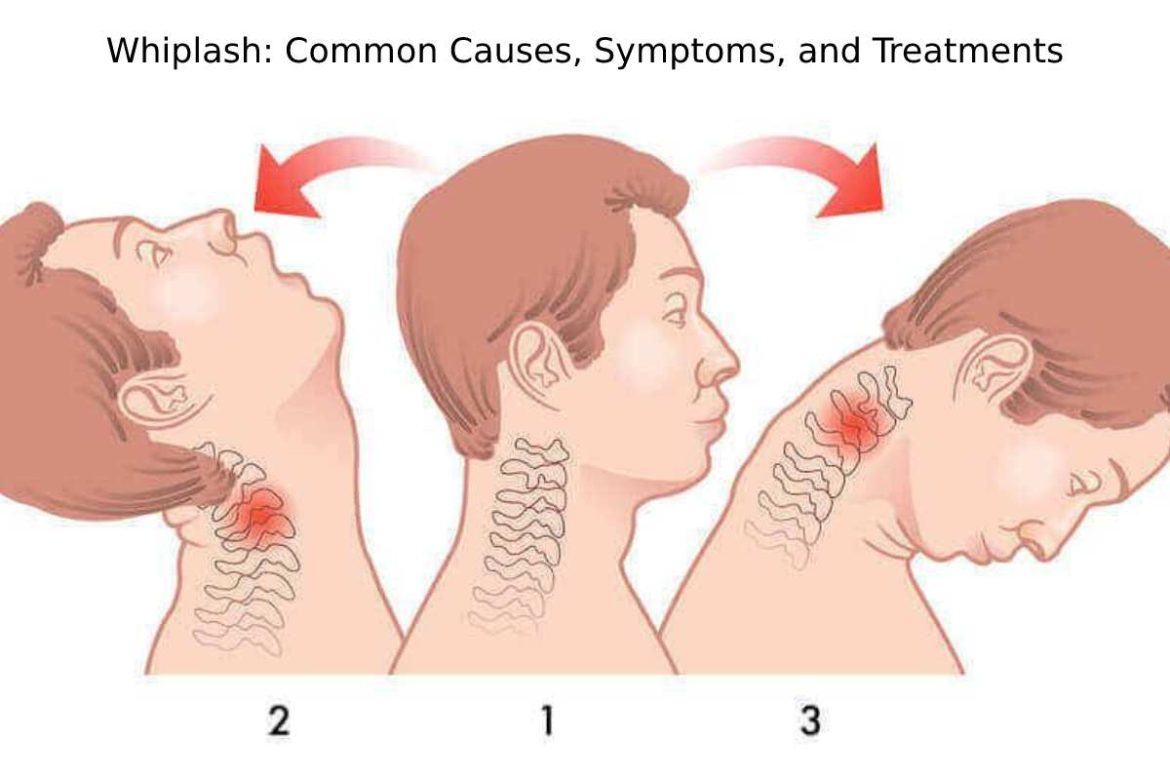Whiplash – Whiplash is a common type of neck injury. It is said to happen after the neck has been suddenly thrown forward or backward, damaging the soft tissues. This mostly occurs during car collisions, but other events can also sprain muscles in the neck. Whiplash is also often called neck strain or neck sprain and can sometimes cause serious symptoms depending on the severity of the injury.
According to Los Angeles car accident lawyers at The Barnes Firm, “Whiplash can cause a wide range of symptoms depending on which neck tissues are affected. Injuries could be to the muscles, discs, nerves, or ligaments’. You’ll know you’re suffering a whiplash injury if you feel a dull ache in the back and/or front of your neck. You may also experience stiffness in the neck, making it difficult to turn your head from one side to the other among other symptoms.
Causes of Whiplash
Any unexpected flexion of the neck is capable of causing a injury, including sleeping in an awkward position. However, a good number of injuries are a result of a collision of vehicles; or sudden deceleration or acceleration. Many of these injuries are also a result of a rear-end automobile collision. Seeking car accident therapy can help address the damage caused by such incidents and improve recovery outcomes. Whiplash can be a result of the collision of a fast-moving vehicle, or a slow-moving vehicle. It can even occur if one’s sitting in a stationary car that gets hit by another vehicle.
Occasionally, whiplash can occur as a result of a sports injury, especially during contact sports. Seeking treatment from a qualified chiropractor can be an effective way to address pain and promote recovery in such cases.
Symptoms of Whiplash
Symptoms of whiplash can be short-term or long-term. Some of the symptoms begin as temporary warning signs but when left untreated, they degenerate. Sometimes symptoms are pronounced, other times they could be mild and disappear on their own.
Here are the most common signs of a whiplash injury:
- Tiredness
- Inability to sleep
- Inability to concentrate
- Memory loss
- Stiff neck
- A dull ache in the neck
- Dizziness
- Lower back pain
- Shoulder pain
- Tinnitus
- Pain or numbness in the arm or hand
- Blurred vision
Long-term Effects of Whiplash
If you have more than a few of the short-term symptoms of whiplash, you may experience long-term whiplash. If left untreated for a long period, it could cause some grave health consequences and long-lasting pain. This is because these injuries may cause more serious conditions in the future. Namely:
Dizziness and Headaches
People who have suffered whiplash injuries may complain of lingering headaches for months or even years after the incident occurred. These are one of the most common long-term effects of whiplash. Whiplash sufferers would also sometimes feel dizzy, faint, or experience vertigo. Chiropractors are known to provide some relief from these symptoms.
Chronic Pain
Chronic pain is pain that lingers for over a few weeks. Chronic pain also impacts one’s mental health, and mental health affects your fitness level. Whiplash injuries not only keep one in perpetual pain but they’ve also been known to cause some cognitive problems; whereby one is easily distracted, irritable and cannot focus on any tasks.
If left untreated, whiplash can cause pain that lasts several years. Pain caused by whiplash injuries needs steady treatment and careful management. Many people who suffer chronic pain have given up on seeking solutions because nothing seems to work.
However, chiropractic care has been proven to offer some relief to sufferers of chronic pain caused by whiplash.
If you’re seeking professional care, a chiropractor in Ponte Vedra Beach, FL can help provide the applicable treatment to alleviate your symptoms and improve mobility
Reduced Mobility
After you’ve suffered a whiplash injury, some parts of your body might be stiff. This may prevent you from walking as much as you’d like. Limited mobility causes limited productivity as one is unable to complete simple daily tasks. Long-term whiplash injuries also affect one's lifestyle. A study found that about 30% of people who obtained injuries from auto accidents were still unable to go back to work two years later. On the bright side, rehabilitation exercises have been known to help sufferers regain mobility.
Diagnoses and Treatment of Whiplash Injuries
Symptoms of whiplash injuries may closely resemble symptoms of several other ailments, so one needs to be diagnosed by a doctor. The doctor would take your medical history and perform a physical exam alongside some tests to ascertain the extent of the damage. Tests performed to diagnose these injuries include X-rays, magnetic resonance imaging (MRI), and computed tomography (CT) scans.
Treatment for whiplash may include physical therapy, OTC medication, cervical collars, muscle relaxants, application of ice packs soon after the incident, and osteopathic manipulation.


